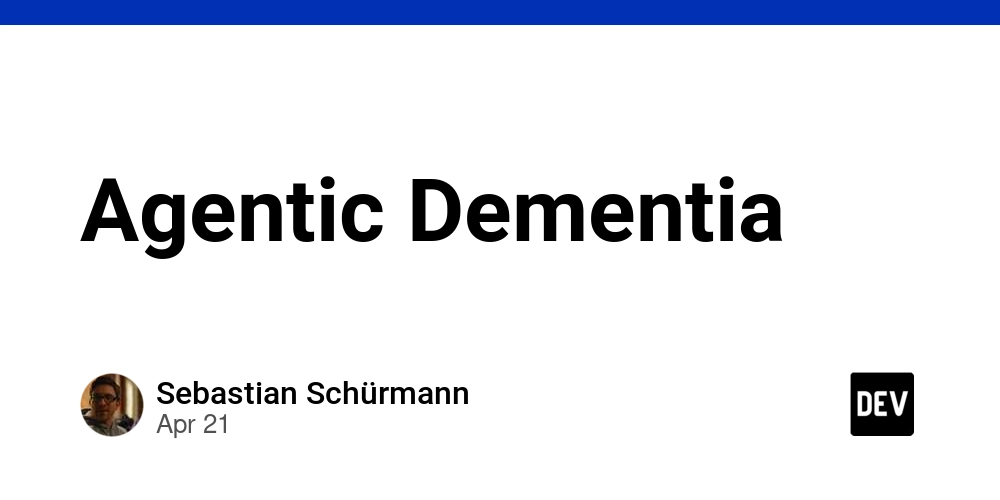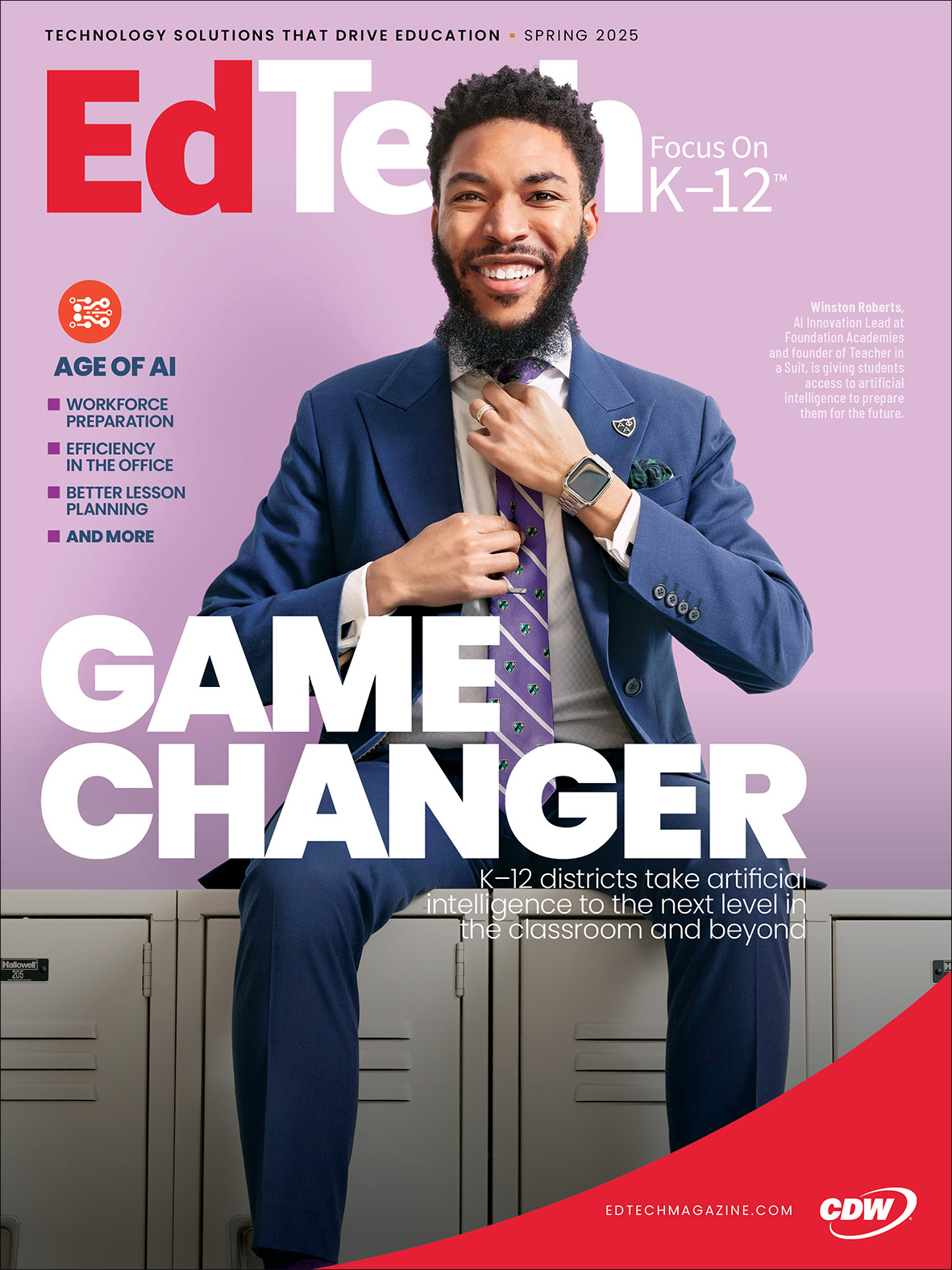Agentic Dementia
Let's be clear: agentic LLMs for coding support and research are phenomenal. Tools that can autonomously break down problems, write code, debug, search for information, and synthesize findings are game-changers. They've undeniably made me more effective, allowing me to tackle problems I might have previously shied away from, and more efficient, cutting down the time spent on tedious tasks. For me, they are definitely here to stay. But. There's always a "but," isn't there? As I integrate these powerful agents more deeply into my workflow, a few nagging concerns have started to surface. While I celebrate the productivity gains, I'm increasingly wary of the hidden costs and trade-offs. Here’s what’s been bothering me: 1. The Disappearing Act of Learning: Remember the deep satisfaction – and deeper learning – that came from wrestling with a complex bug for hours, finally understanding the root cause, and implementing the fix? Or painstakingly synthesizing research papers to form a novel insight? That struggle is the learning process. Agentic LLMs often short-circuit this. They present the solution, the code, the summary. It works, it's fast, but the "aha!" moment, the internalization of the why behind the what, often gets lost. We get the answer, but we miss the journey that truly builds expertise and intuition. Are we trading long-term skill development for short-term convenience? 2. Paying to Be the Trainer: Here's the kicker: We pay subscription fees to use these thinking agents. But what happens when the agent gets something wrong, misunderstands the context, or needs guidance? We provide the correction, the clarification, the crucial feedback. Essentially, we are paying for the privilege of acting as quality control and providing the invaluable human feedback that trains the provider's next-generation AI. My interaction log, filled with my domain expertise and problem-solving insights, becomes their training data goldmine. It feels uncomfortably close to being a paid clickworker, improving a proprietary system from which I see no direct financial return beyond the service itself. 3. The Erosion of Craft: Software development, research, writing – these aren't just about producing output. There's a craft involved. It involves deep thought, creative problem-solving, architectural decisions, nuanced understanding. When we outsource the "thinking" parts – the debugging logic, the research synthesis, the code structure generation – are we slowly eroding the very essence of our craft? My role risks shifting from creator and problem-solver to prompt engineer and output validator. While these are skills in themselves, they feel fundamentally different, potentially less fulfilling, and risk devaluing the core intellectual contributions that define these professions. 4. "LLM Dementia": Knowledge Locked Behind Paywalls: The results generated by these agents, the conversational history, the refined solutions derived from my prompts and feedback – this body of knowledge becomes intrinsically linked to my account with the provider. What happens when I decide to switch services or can no longer justify the subscription cost? Poof. That entire history, that context-specific "memory," is often inaccessible. It's like developing a project-specific form of dementia, where knowledge painstakingly built up within the agent's context is suddenly lost. This data lock-in is a significant hidden cost, preventing the seamless transfer or personal archiving of valuable work product and intellectual exploration. 5. The Meter is Always Running: More complex tasks, deeper "thinking," longer context windows – these inevitably translate to higher usage costs. This pay-per-thought model creates a subtle pressure to perhaps not explore avenues as deeply, or to simplify requests, potentially stifling creativity or thoroughness for fear of running up the bill. The Bottom Line: I'm not ready to ditch these agentic tools. The productivity boost is real and often necessary in today's fast-paced environment. However, I believe we need a more critical conversation about the terms of engagement. Are we comfortable paying to train systems that concentrate knowledge and potential profits elsewhere? How do we preserve the essential learning process that builds true expertise? Can we demand more transparency and data portability, ensuring our interaction history remains our asset? How do we balance leveraging these tools with nurturing the core craft and intellectual satisfaction of our work? Agentic LLMs are powerful allies, but like any powerful tool, they require careful handling and a clear understanding of the trade-offs. Right now, it feels like we're so mesmerized by the magic that we're not looking closely enough at the price tag – a price measured not just in dollars, but potentially in learning, ownership, and the very nature of our craft.

Let's be clear: agentic LLMs for coding support and research are phenomenal. Tools that can autonomously break down problems, write code, debug, search for information, and synthesize findings are game-changers. They've undeniably made me more effective, allowing me to tackle problems I might have previously shied away from, and more efficient, cutting down the time spent on tedious tasks. For me, they are definitely here to stay.
But.
There's always a "but," isn't there? As I integrate these powerful agents more deeply into my workflow, a few nagging concerns have started to surface. While I celebrate the productivity gains, I'm increasingly wary of the hidden costs and trade-offs.
Here’s what’s been bothering me:
1. The Disappearing Act of Learning:
Remember the deep satisfaction – and deeper learning – that came from wrestling with a complex bug for hours, finally understanding the root cause, and implementing the fix? Or painstakingly synthesizing research papers to form a novel insight? That struggle is the learning process.
Agentic LLMs often short-circuit this. They present the solution, the code, the summary. It works, it's fast, but the "aha!" moment, the internalization of the why behind the what, often gets lost. We get the answer, but we miss the journey that truly builds expertise and intuition. Are we trading long-term skill development for short-term convenience?
2. Paying to Be the Trainer:
Here's the kicker: We pay subscription fees to use these thinking agents. But what happens when the agent gets something wrong, misunderstands the context, or needs guidance? We provide the correction, the clarification, the crucial feedback.
Essentially, we are paying for the privilege of acting as quality control and providing the invaluable human feedback that trains the provider's next-generation AI. My interaction log, filled with my domain expertise and problem-solving insights, becomes their training data goldmine. It feels uncomfortably close to being a paid clickworker, improving a proprietary system from which I see no direct financial return beyond the service itself.
3. The Erosion of Craft:
Software development, research, writing – these aren't just about producing output. There's a craft involved. It involves deep thought, creative problem-solving, architectural decisions, nuanced understanding. When we outsource the "thinking" parts – the debugging logic, the research synthesis, the code structure generation – are we slowly eroding the very essence of our craft?
My role risks shifting from creator and problem-solver to prompt engineer and output validator. While these are skills in themselves, they feel fundamentally different, potentially less fulfilling, and risk devaluing the core intellectual contributions that define these professions.
4. "LLM Dementia": Knowledge Locked Behind Paywalls:
The results generated by these agents, the conversational history, the refined solutions derived from my prompts and feedback – this body of knowledge becomes intrinsically linked to my account with the provider. What happens when I decide to switch services or can no longer justify the subscription cost?
Poof. That entire history, that context-specific "memory," is often inaccessible. It's like developing a project-specific form of dementia, where knowledge painstakingly built up within the agent's context is suddenly lost. This data lock-in is a significant hidden cost, preventing the seamless transfer or personal archiving of valuable work product and intellectual exploration.
5. The Meter is Always Running:
More complex tasks, deeper "thinking," longer context windows – these inevitably translate to higher usage costs. This pay-per-thought model creates a subtle pressure to perhaps not explore avenues as deeply, or to simplify requests, potentially stifling creativity or thoroughness for fear of running up the bill.
The Bottom Line:
I'm not ready to ditch these agentic tools. The productivity boost is real and often necessary in today's fast-paced environment. However, I believe we need a more critical conversation about the terms of engagement.
- Are we comfortable paying to train systems that concentrate knowledge and potential profits elsewhere?
- How do we preserve the essential learning process that builds true expertise?
- Can we demand more transparency and data portability, ensuring our interaction history remains our asset?
- How do we balance leveraging these tools with nurturing the core craft and intellectual satisfaction of our work?
Agentic LLMs are powerful allies, but like any powerful tool, they require careful handling and a clear understanding of the trade-offs. Right now, it feels like we're so mesmerized by the magic that we're not looking closely enough at the price tag – a price measured not just in dollars, but potentially in learning, ownership, and the very nature of our craft.











































































